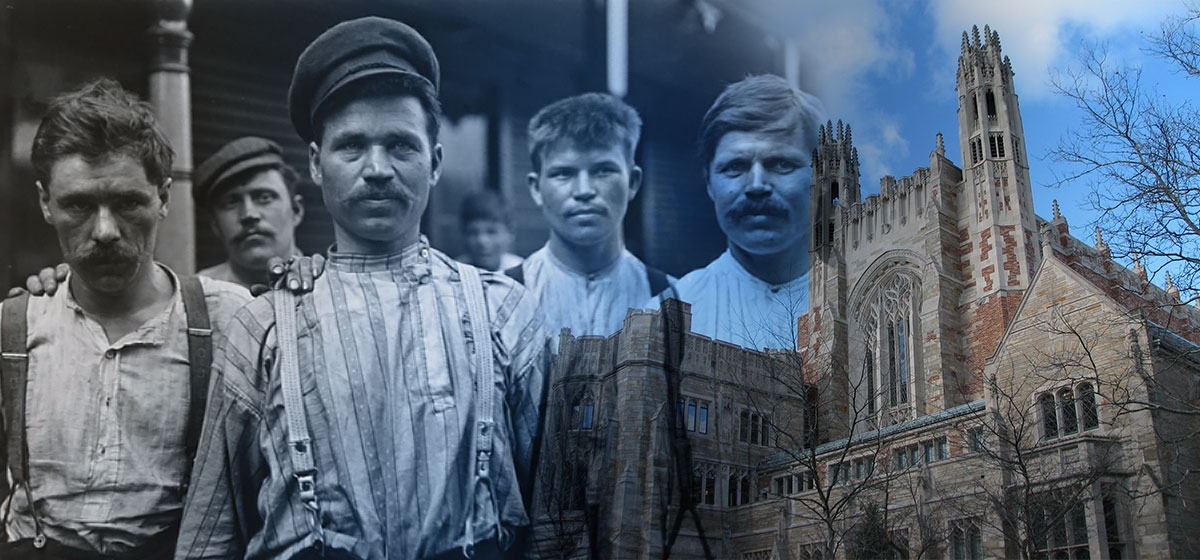The Stubbornness of Culture

In 2013 J. D. Vance graduated from Yale Law School, an accomplishment he shared that year with the following fraction of his fellow Americans: 0.00000063.
I deduced this remarkable statistic very simply, by dividing the number of students in the Yale Law School class (208) by the population of the United States, which, at this writing—5/7/18, 16:47 hours GMT—is 327,675,133.
One reaction to this data point might be, “So what’s all the fuss about?” After all, if your grandparents can leave southeastern Kentucky and take their pernicious culture with them to Ohio, and if, despite that, their grandson can graduate from Yale Law School, then everything must be peachy-keen, right? The American Dream must be alive and well, even in Jackson, Kentucky.
Of course, that’s not how Vance sees it. He looks at a different set of statistics. Roughly 30% of Americans are working class people. Therefore, there must have been roughly 70 students with working class backgrounds in Vance’s class at Yale Law School, right? After all, this is America and graduating from places like Yale Law is how the American Dream stays alive for disadvantaged kids.
Actually, there was one—Vance. (Harvard Law, by the way, is even worse.)
Yale prides itself on its affirmative action outreach programs, activities that have led to overrepresentation at the Law School among women (53%) and people of color (47%). Can anyone imagine the outrage if women or minorities were underrepresented at Yale by a factor of 70? It’s the very fact that no one cares, that there’s no outrage at all, that has Vance riled up.
But even if all you care about is gender and racial discrimination, think about the reason “Hillbilly Elegy” struck such a nerve. Unlike America’s elites, working people care very much about their marginalization in America. They are outraged that they are treated like pond scum by the likes of Yale and Harvard.
Working people don’t march in the streets and they don’t start #MeToo social media movements, but they do vote. And they vote for Donald Trump. And for Brexit in the UK, and for Victor Orban in Hungary, and for League and Five Star in Italy, and for Sebastion Kurz’ OVP in Austria, and so on. If this is the kind of world you want, Vance suggests, keep things just as they are and you will be very happy. If it’s not the world you want, maybe you should wake up and smell the rot.
But suppose we do wake up and smell the rot. What can we do about it? I don’t agree with everything in “Hillbilly Elegy,” but I do agree with Vance’s bottom line conclusion: there isn’t much at all we can do about it, because it’s too damn late.
Consider the usual bromides, starting with jobs. If America had had an industrial policy three generations ago that ensured Appalachia would get its fair share of jobs, that might have been important, even transformative. But by the time of Vance’s grandparents’ generation, simply providing jobs to people with destructive social cultures was one-Band-Aid-too-small.
Recall that Papaw had a good job at Armco Steel, where he worked all his life. He liked that job and was good at it and he made a decent income. But the destructive culture he and Mamaw had had instilled in them in Jackson, Kentucky was too powerful. Mamaw and Papaw weren’t dirt poor in Middletown, Ohio, but they were still insular, stubborn, and violent. They were still, in other words, hillbillies.
The same is true of the government’s well-intended attempts to provide money, health care, care for at-risk kids, housing, and so on. Like jobs, these are necessary-but-insufficient conditions for success in circumstances where dysfunctional cultures have already set themselves in cement.
The strategy behind government assistance programs is to deliver to disadvantaged families something like the essentials of modern life that middle class and upper-middle class families take for granted. The War on Poverty, for example, spent $15 billion in Appalachia, but, alas, it disappeared without a trace. When these programs land on the doorstep of culturally dysfunctional families they are stillborn: culture eats strategy for breakfast.
In other words, you can throw all the government money you can find at unreconstructed hillbillies but you won’t get anywhere. Papaw and Mamaw weren’t financially poor, they were culturally poor.
And there were way too many Kentucky migrants who were just like Mamaw and Papaw, so many that hillbillies got a very bad reputation, which they haven’t shaken to this day. And once a sub-group gets a bad rep, it’s hell trying to change it.
Consider Nobel Prize winner Daniel Kahneman’s recent book “Thinking, Fast and Slow,” which distinguishes between what Kahneman calls our System 1 and System 2 brains. System 1 dominates how we think because it can move quickly and instinctively, cutting through the complexity of life’s many decisions. Alas, System 1 doesn’t always get things right.
System 2 is much better at sorting through complexity and arriving at more accurate decisions, but it is, as Kahneman points out, slow and lazy. System 2 only kicks in when we force it to go to work, and even then it dawdles along like it has all day to get where it’s going.
If our System 2 brain saw two people coming into its Middletown, Ohio store—say, Mamaw and Papaw—what would it do? It would say, okay, these nice folks look like hillbillies, which means they come from southeastern Kentucky and have a very different culture than we have here in middle-class Ohio. I can see that they dress funny, and when they open their mouths I will see that they talk funny.
Maybe, says System 2, these folks have hair triggers and if something annoys them they’ll trash my store. But, on the other hand, maybe not! Maybe they are like Curtis’s granddad and grandma and will be less prone to violence than I am! Just because some hillbillies like to trash stores, that doesn’t mean that all hillbillies like to trash stores.
But is that the way the real world works? No, it isn’t. Next week we’ll take a look at the real world hillbillies live in.
Next up: On Hillbilly Elegy, Part IX





